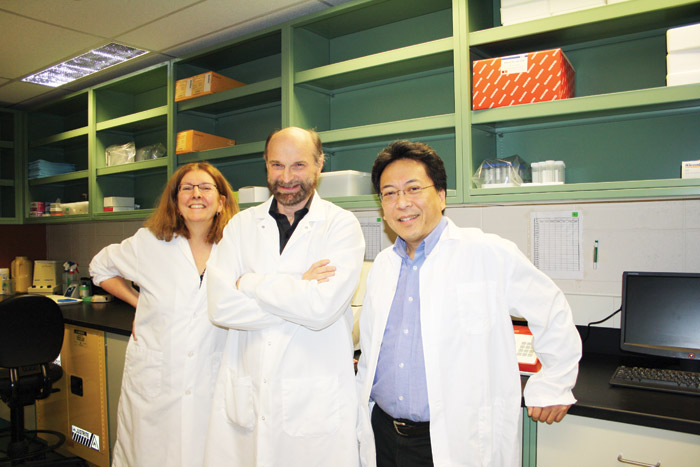Potatoes, known for their carbohydrate content and delicious role in poutine, have a reputation for being unhealthy with dieters usually avoiding them at all costs. But a team of researchers from McGill University has shown that potatoes may in fact help those trying to slim down.
The team fed a group of mice a high-fat diet for 10 weeks, and then gave some of the mice an extract they had prepared from potatoes. What they discovered was astounding.
The mice from the control group—which all originally weighed about 25 grams—gained 16 grams of weight. However, the mice that were also consuming the potato extract gained only seven grams.
“Weight gain was inhibited by 50 per cent,” explained associate professor Stan Kubow, principal author of the study.
The idea for the study came about when Kubow and one of his collaborators, McGill associate professor Danielle Donnelly, were on a flight together. Donnelly, whose focus is on improving the nutritional components of strains of potatoes, seemed to be the perfect collaborator for Kubow.
“[Kubow] said he always wanted to work [on the] potato,” explained Donnelly. “We wanted to see how his background as a nutritionist could improve our selection criteria.”
Kubow has spent the majority of his career working with antioxidants, such as polyphenols, which are found in most plants. The two researchers analyzed a variety of cultivated potatoes and compared nutritional values to select for the most abundant and rich polyphenol profile.
“Polyphenols have been implicated with [protection against] obesity, diabetes, and cardiovascular disease,” Kubow explained.
This makes them an ideal candidate for weight-loss studies. The team decided to make an extract of potatoes, increase the concentration of the polyphenols, and then observe the potato’s disease-preventative properties. In order to do this, they approached McGill molecular biologist and professor Luis Agellon.
“[Agellon and I realized] it wasn’t the fact that [the mice] were inhibited from eating the high-fat diet,” Kubow said. “The weight gain was inhibited primarily [after.]”
Interestingly, it was not a single major polyphenol from the extract that was responsible for the weight loss.
“As a control, we fed the mice the major synthetic polyphenols, and [the mice] didn’t lose as much weight as those fed the extract,” Kubow explained.
Localizing and determining what has been causing the weight loss is the next major goal, explained Donnelly.
“We need to fractionate the extract and see what’s working synergistically or not,” Donnelly said.
According to Kubow, the extract had to be optimized for maximum weight gain prevention, and conducting the animal trials proved to be difficult, but ultimately worthwhile.
At the moment, the dose from the extract would be the equivalent of eating 30 potatoes, which is something that cannot be realistically incorporated into a consistent human diet. Instead, the researchers are hoping to create some sort of dietary supplement.
The researchers are hoping that as more evidence comes out showcasing the benefits of potatoes, their bad reputation will subside.
“Potatoes are extremely important,” Donnelly explained. “A tennis ball-sized potato [provides] about half of the mineral elements [a human needs] for the day.”
The biopotency of the potato took the team by surprise, because it goes against the commonly held belief that potatoes promote obesity. However, Kubow explained that the French diet—also known as the French paradox, in which French men and women are less likely to lose weight—includes potatoes as a number one source of polyphenols.
The researchers hope to begin clinical trials to test the effects on humans. According to Kubow, one in four Canadians are overweight or obese, and 1.4 billion people in the world are overweight. As such, identifying components in the diet that can protect against obesity is an extremely important field of research.








